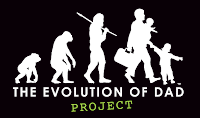This morning I’m thrilled to bring you one of the amazing women from this fall’s “Making It Pop” bloginar: Jill Moffett. Jill, a PhD in Women’s Studies from the University of Iowa, has just completed her MPH and is currently working at the University of North Carolina Chapel Hill. She’s hard at work on a very important book about how women are reforming the U.S. healthcare system. Here’s Jill:
Even though I have two graduate degrees and a full time job at a major research university, I have am one of the millions of Americans who has no medical insurance. I’m trying to be patient and to not worry obsessively, since I’m pretty sure I’ll be getting benefits sometime in 2008. But being uninsured does make me extra careful to look both ways before I cross the street.
My fear of getting hit by a bus is only one reason why I am excited about the upcoming Raising Women’s Voices for Healthcare Reform Conference to be held in Boston in April 2007. The conference, put on by the Avery Institute for Social Change, the National Women’s Health Network, and Mergerwatch will provide a unique opportunity for women’s health activists to come together as a group and brainstorm about how to make women’s voices heard in the public debate about healthcare reform.
This gathering comes on the heels of a series of Webinars sponsored by the same coalition, which provided an overview of some of the critical issues in the debate and provided a forum for discussing how to address them. This type of hands-on, practical educational effort is an excellent example of feminism in action. As Byllye Avery – founder of the National Black Women’s Health Project noted during the first Webinar, it is crucial that women and women’s organizations get involved in this discussion, because if we don’t, our issues won’t be addressed by policymakers, politicians or the media.
The mainstream media would have us think that the only woman who has anything important to say about healthcare reform is Hilary Clinton, whose plan would have me legally required to purchase healthcare, an option which is hardly appealing given my meager salary and substantial student loans. As women’s studies professor Susan Feiner argued in her October article on Alternet, subsidizing health insurance purchase with tax credits is a plan which will still leave many women out in the cold.
Not only do women have much to gain from healthcare reform – after all, women visit doctors far more often than men do –but we also have some great ideas about what healthcare in America could look like. Breast cancer activists rallied together and not only managed to make doctors abandon the practice of the “one-step radical mastectomy,” but also succeeded in having breast and cervical cancer screening and treatment covered under Medicaid. Planned Parenthood clinics have long offered sliding scale prices and preventative care, and breastfeeding activists note that workplace lactation promotion programs will save corporations and the medical insurance system money.
This is why the Raising Women’s Voices Conference is so important. Although the mainstream media hasn’t paid much attention to the hard work that women are doing to reform the healthcare system, these efforts need to be highlighted. The conference won’t ensure that my medical bills are paid if I do get hit by a bus, but at least it might generate some awareness that Hilary’s isn’t the only woman’s voice that’s being raised in the discussion about how to fix this broken healthcare system.
Interested in guest posting on GWP? Email me (Deborah) at the address at the bottom of the page with your idea and I’ll send you some brief guidelines.






